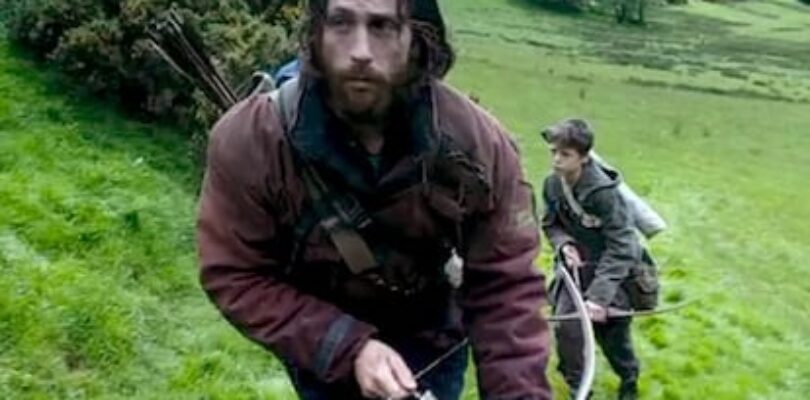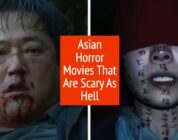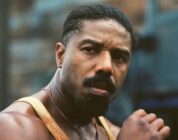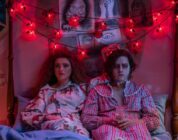Danny Boyle (Radcliffe, England, 68) sits down opposite the journalist and bursts out laughing. The English filmmaker is good at promotion, and the conversation begins by going back to 1994, at the San Sebastián Film Festival presentation of his debut cinematic release, Shallow Grave, a dark comedy. “It was before everything, what a time,” the director chuckles. And by “everything” he means Trainspotting, 28 Days Later, an Oscar for Slumdog Millionaire, two further nominations for 127 Hours, the commercial success of The Beach or Sunshine, to much less heralded projects, to his departure from the 007 universe when he was preparing a James Bond film, to his anger with David Bowie when he didn’t give him the rights to his songs for a musical, or to his brilliant miniseries Pistols, about the legendary punk band.
It’s curious that a filmmaker with the soul of an auteur like Boyle, who has never rested from his output, is one of those who only joins projects when they appear with funding. Like 28 Years Later, which opens worldwide on June 20. The first installment, 28 Days Later, was released in 2002, and the second, 28 Weeks Later, directed by Juan Carlos Fresnadillo, five years later. The rights to the sequels were divided among several companies, and after their reunion, Boyle and Alex Garland teamed up again to write. So there will be two films in one go, because the fourth installment, directed by Nia DaCosta, was shot at the same time as the third. Hence the abrupt end to 28 Years Later and the absence of Cillian Murphy, the star of the first movie. “When we released the trailer, my girlfriend told me a zombie looked like Cillian. I laughed and said, ‘People aren’t that stupid, they won’t be mistaken.’ I’ve eaten my words.”
So no, that rabies-infected person isn’t Murphy, who appears in the credits here as executive producer. We’ll have to wait for the fourth. And the fifth? “For me, it’s the third, because we feel like it’s a reboot. Alex and I, who will direct, are clear about where we want to go and how, and that Cillian will be very important. But there’s no script or investors yet.”
In horror cinema, the zombie subgenre has always carried a political charge. When George A. Romero had to replace his lead actor just days before shooting Night of the Living Dead with African-American Duane Jones, he unwittingly added an extra layer of racism in the U.S. to the main plot and opened up a cinematic path. In 28 Years Later, continental Europe is free of infected people, with warships patrolling the British coast, while the island lives in perpetual quarantine. Can you call that Brexit? “Of course! We haven’t made a political film, but we’ve used the current world as a reference, how we behave in it, what cultural legacy we’re going to leave behind. Brexit has constrained us, locked us in, and that’s what 28 Years Later is about. They pretended it was about growth in trade, but in reality it’s navel-gazing, it’s this nonsense of believing ourselves superior to the rest of Europe. That great England [he takes on a pompous tone], those historic victories… That’s why there are images in the film of, for example, Henry V with Laurence Olivier and his archers. And we’re a small, shitty island, not an empire [laughter]. This regressive thinking has fueled Brexit.”
In the plot, Boyle insists, there is a moral undertone. “What do you do when you no longer communicate with anyone? How do you behave? The father [Aaron Taylor-Johnson] opts for a brutal upbringing, military training. You kill or you’re killed. The mother, on the other hand, still ill, has other aspirations. And the young protagonist seeks his own path. As all teenagers must. I have a lot of faith in the younger generations; they’re better than us… Well, these are the ramblings of an old man.”
With the television success of series like The Walking Dead and The Last of Us, didn’t you feel like after 28 Days Later, you’d lost out? “Of course, we should have gotten a percentage [laughter]. Seriously, we always felt like the appetite for zombie stories wasn’t waning. And that they set parameters for us, things we didn’t have to repeat, fresh perspectives to explore. And even though it was a sequel, we had to bring in new ideas, like different classes of infected, or zombie alpha males, or the fact that they hunt, or the newborn, which suggests they have sex with each other: they won’t have brains, but a body is a body, and every species fights to survive.”
I wrote [the James Bond] script with John Hodge and they thought it was too radical, which to me meant interesting”
Boyle left the 25th James Bond film with the project still very much underway. Ironically, in 28 Years Later, he directed Bond’s boss, M, (Ralph Fiennes) and the actor bookmakers are tipping Aaron Taylor-Johnson as the favorite to be the new 007. “More than that, think about how Ralph would have made a great secret agent 25 years ago. Anyway, I wrote that script with John Hodge [his regular co-writer on films like Trainspotting] and they thought it was too radical, which to me meant interesting. They lost faith in that script [he searches for the right words to avoid putting a foot in it], and I realized I was going to be embarking on a disaster. So we left.” But he’s not giving away any details about Taylor-Johnson.
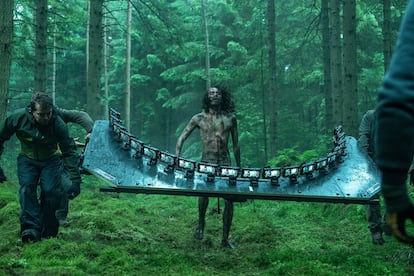
The conversation turns to his relationship with Alex Garland, whom he met when he was just a writer for The Beach; today he’s a prestigious director. “His progression was already foreseeable, very natural. His scripts are very refined, because he likes to research and then develop his ideas with the director, allowing you to unfold before him. And he also has great ideas for the editing. Anyway, when we sit down together I feel like everything remains, for the better, the same.”
Boyle concludes with the technological innovations that affect the form of his latest work. “In 28 Days Later, we initially embraced digital cameras. Here, we embraced iPhones because they allow for a ton of possibilities. We shot with cameras set up in a row, and that lets you use stitched images or select a point of view, and with 4K quality. And it portrays violence in a believable way; it’s important to show how it affects bodies… That’s part of the responsibility of making a film like this, for adults.”
But doesn’t he think that market, that of adult films, is dwindling every day? “Adult films are a very useful tool. We go to theaters to see… extremes, themes that push you to the limit and help us think. There, we tolerate those extremes. At home, it’s a different story, right? The atmosphere is different.” In theaters, however, we applaud that experience. “Of course, although we’re losing it… Marvel monopolizing everything? Marvel will end up swallowing itself and self-destructing. What will remain after that? I don’t know, although there are still films that guarantee me that different journey, like Sinners. It’s original and it challenges you.”
Sign up for our weekly newsletter to get more English-language news coverage from EL PAÍS USA Edition

